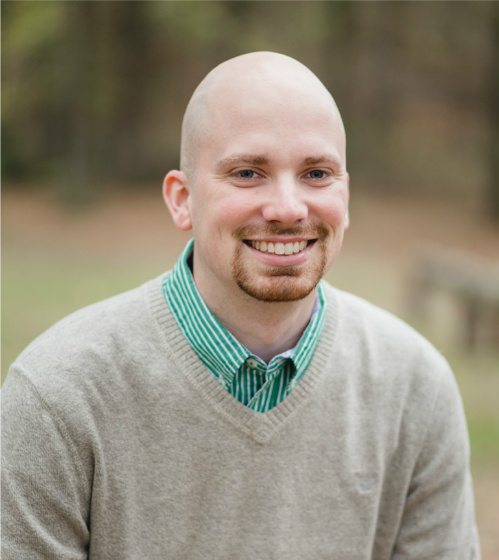Developer Taylor Otwell on the art of programming
by May 9, 2016 8:58 pm 7,313 views

“The PHP Framework for web artisans.” – Laravel website
Taylor Otwell is an Arkansas programmer who has made a global impact very quickly. The Arkansas Tech University graduate is the developer of the most popular PHP (Hypertext Preprocessor) framework in the world.
After taking his first job, Otwell plunged into a side project where he developed Laravel, an Open Source PHP Framework. The “side project” took off and became a full-time endeavor. Otwell boasted on a post in January 2014 that Laravel had become the most popular PHP project on Github. Indeed, if you look at the trending repositories for PHP, Laravel occupies the top two spots and comes in at number three for all PHP developers, just behind Facebook and Google.
The Laravel community is strong and supportive. The community hosts two Laracons, which are conferences for developers in the Laravel community to come together. One is in the U.S. and one is in Europe. Sitepoint recently published results of a yearly survey that proclaimed Laravel as the overwhelmingly favorite PHP framework in 2015.
Talk Business & Politics recently caught up with Otwell to learn more about his Laravel, his thoughts on programming and the Arkansas programming landscape.
____________________
TB&P: How did you get started programming? Who encouraged you?

Otwell: I studied at Arkansas Tech University and then was hired by Arkansas Best Corporation (now ArcBest). Thankfully, ArcBest has a great training program that they immerse you in for six months. So that’s where I learned most of the basic programming techniques as they applied in the “real world.” I worked with a lot of passionate programmers there who really inspired me to care about programming as a craft, and not just as a job.
TB&P: Can you explain the difference between a web application framework like Laravel and other frameworks for development such as Content Management Systems (CMS)?
Otwell: The vast majority of websites have very similar features. Basically, all websites have a “login” feature, interact with a database, and display HTML to users. A framework like Laravel allows more “bespoke” application development compared to a CMS such as WordPress or Drupal. For example, perhaps your business is interested in building “help desk” software. It would be very difficult to build this type of system in a CMS such as WordPress. Laravel can also be used to power the back-end of mobile applications on various platforms.
TB&P: Why did you choose to make Laravel open source?
Otwell: Most other web frameworks are open-source, so I would be facing a tough uphill battle to try to sell a closed-source web framework when programmers could choose a free, open-source alternative like Ruby on Rails. Of course, having thousands of other people around the world willing to contribute to a framework helps you implement new features much faster than you could alone.
TB&P: Have you ever thought about hosting Laracon in Arkansas?
Otwell: I have definitely considered it. The primary factor preventing me from doing so is simply the lack of suitable venues. I prefer to pick unique venues rather than the typical hotel/convention center route. Now that Laracon has grown to over 500 attendees every year, it is getting harder to find these types of venues.
TB&P: What kind of advice do you have for young programmers? For those changing careers to programming?
Otwell: My advice would vary depending on their goals. I think the typical university programming curriculum or a bootcamp will give you the skills to be fairly successful at many companies. However, if you are interested in launching your own product or business, I would really encourage programmers to pour themselves into the craft. Read books, read blog posts, and watch screencasts on programming topics and learn from the best. I would also suggest learning about marketing and branding as well. Many programmers launch tools or businesses without the proper marketing and their technically impressive product flounders.
TB&P: What motivates you to be a better programmer?
Otwell: I’m very passionate about building great products. Everything I “ship” has my name attached to it, and I want that “brand” to have a very high quality. So, if I’m working on a new Laravel feature or product, I definitely sweat the small stuff because I want people to feel like when they are using a Laravel product they are using something that was built with a lot of care and attention to detail.
TB&P: What can Arkansas do better in terms of encouraging you people to learn to code?
Otwell: I’ve been impressed by some of the initiatives already in place to help young people get interested in coding. I think it’s great that junior high and high school students are being exposed to at least introductions to programming in school, and that may inspire them to pursue it more in college or in some other alternative learning environment. But, even in college, I still only had a vague idea about what a programmer does on a daily basis. So, I think hearing from actual programmers could also be a great way for students to learn about what it’s like to be a programmer and what opportunities are available.
TB&P: Where do you see the future of development going, especially in Arkansas?
Otwell: I think it’s an especially exciting time to be a developer. There are so many tools available to you to build amazing applications. Being a developer is unique in that there is essentially unlimited earnings potential and one person can release a product that makes an impact on tens or hundreds of thousands of people. However, I do fear that the barrier of entry to modern programming is getting higher over time. The tooling evolves at a very rapid pace and current “best practices” are often out-dated within a few years. I think some have tried to overcome this by taking on the “bootcamp” model of training, which we have seen recently with IronYard in Little Rock. I think this could be a beneficial approach to learning web development since you can immerse yourself in the environment for several months. I will be very interested to see if this model gains long-term traction across the country.
TB&P: What are your favorite tools for getting things done?
Otwell: I currently only use two tools for this: Trello and Wunderlist. In Trello, I keep a column for each day of the week where I spread out my tasks throughout the week, which keeps me from having one monolithic to-do list that is overwhelming each day. I use Wunderlist for breaking down things I need to get individual tasks done. For example, all the steps I need to take to fix a given bug.
